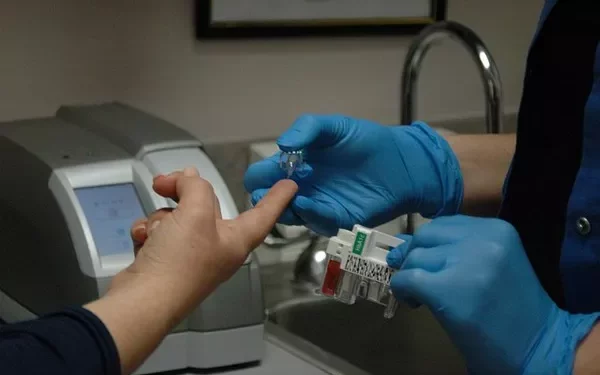Pre-diabetes is a condition that signifies higher-than-normal blood sugar levels but not high enough to be classified as diabetes. This condition is a critical warning sign indicating an increased risk of developing type 2 diabetes, heart disease, and stroke. Understanding pre-diabetes and identifying its signs early can lead to interventions that can prevent or delay the onset of diabetes. In this article, we will explore what pre-diabetes is, the risk factors, symptoms, diagnostic tests, and steps you can take to manage and prevent the progression to diabetes.
Understanding Pre-Diabetes
Pre-diabetes is often asymptomatic, meaning many people may have it without realizing it. It is defined by elevated blood sugar levels that are higher than normal but not yet high enough to be diagnosed as diabetes. Specifically, pre-diabetes is characterized by the following blood sugar levels:
- Fasting Blood Glucose: 100 to 125 mg/dL (5.6 to 6.9 mmol/L)
- 2-hour Oral Glucose Tolerance Test (OGTT): 140 to 199 mg/dL (7.8 to 11.0 mmol/L)
- Hemoglobin A1c (HbA1c): 5.7% to 6.4%
These thresholds help healthcare providers identify individuals at risk for diabetes so that they can implement preventive measures.
Risk Factors for Pre-Diabetes
Certain factors increase the likelihood of developing pre-diabetes. Understanding these risk factors can help you determine if you should be tested for the condition:
- Age: The risk of pre-diabetes increases after age 45.
- Weight: Being overweight or obese is a significant risk factor.
- Family History: Having a parent or sibling with type 2 diabetes increases your risk.
- Physical Inactivity: A sedentary lifestyle contributes to weight gain and insulin resistance.
- Ethnicity: People of African, Hispanic, Native American, Asian, and Pacific Islander descent are at higher risk.
- High Blood Pressure: Hypertension is often associated with insulin resistance.
- Abnormal Cholesterol Levels: Low HDL (good cholesterol) and high triglycerides levels are risk factors.
- History of Gestational Diabetes: Women who developed diabetes during pregnancy have an increased risk.
- Polycystic Ovary Syndrome (PCOS): PCOS is associated with insulin resistance.
Symptoms of Pre-Diabetes
Pre-diabetes typically does not present noticeable symptoms. However, some people may experience:
- Increased Thirst: Excess glucose in the blood can cause dehydration.
- Frequent Urination: The kidneys work harder to filter out excess sugar, leading to more urination.
- Fatigue: High blood sugar levels can lead to feelings of tiredness.
- Blurred Vision: Fluctuating blood sugar levels can cause vision changes.
- Slow-Healing Sores: High blood sugar impairs healing and increases infection risk.
Because these symptoms are subtle and can be attributed to other factors, it is crucial to undergo regular screening if you are at risk.
Diagnostic Tests for Pre-Diabetes
Several tests can diagnose pre-diabetes. These tests measure blood sugar levels and provide insight into your risk of developing diabetes.
Fasting Blood Glucose Test
The fasting blood glucose test measures blood sugar levels after an overnight fast. A level between 100 and 125 mg/dL indicates pre-diabetes. This test is straightforward and commonly used.
Oral Glucose Tolerance Test (OGTT)
The OGTT involves fasting overnight and then drinking a sugary solution. Blood sugar levels are tested before and two hours after consuming the drink. A two-hour blood sugar level between 140 and 199 mg/dL indicates pre-diabetes. This test provides a detailed picture of how your body processes sugar.
Hemoglobin A1c Test
The A1c test measures average blood sugar levels over the past two to three months. An A1c level between 5.7% and 6.4% indicates pre-diabetes. This test does not require fasting and reflects long-term glucose control.
Lifestyle Changes to Manage Pre-Diabetes
If you are diagnosed with pre-diabetes, lifestyle changes can significantly reduce your risk of progressing to type 2 diabetes. Here are some effective strategies:
Healthy Eating
Adopting a balanced diet is crucial for managing blood sugar levels. Focus on:
- Whole Grains: Choose whole grains over refined grains to stabilize blood sugar.
- Fruits and Vegetables: Incorporate a variety of colorful fruits and vegetables for essential nutrients and fiber.
- Lean Proteins: Opt for lean meats, fish, beans, and legumes.
- Healthy Fats: Include sources of healthy fats, such as nuts, seeds, and olive oil.
- Limit Sugary Foods: Reduce intake of sugary beverages, desserts, and processed foods.
Regular Physical Activity
Exercise helps improve insulin sensitivity and aids in weight management. Aim for at least 150 minutes of moderate-intensity exercise per week, such as brisk walking, cycling, or swimming. Strength training exercises twice a week can also be beneficial.
Weight Management
Losing even a small amount of weight can significantly improve blood sugar levels. Aim for a 5% to 10% reduction in body weight if you are overweight or obese.
Stress Management
Chronic stress can negatively impact blood sugar control. Practice stress-reducing activities such as yoga, meditation, deep breathing exercises, or hobbies that you enjoy.
Adequate Sleep
Poor sleep can affect insulin sensitivity and glucose metabolism. Aim for 7-9 hours of quality sleep per night.
Monitoring and Medical Interventions
Regular monitoring and medical interventions can help manage pre-diabetes effectively.
Regular Check-ups
Schedule regular check-ups with your healthcare provider to monitor your blood sugar levels and assess your overall health.
Medication
In some cases, medication may be prescribed to manage blood sugar levels. Metformin is a commonly used medication for pre-diabetes, particularly for those with a high risk of developing diabetes.
See also: What’s the Best Blood Glucose Monitoring System
Conclusion
Identifying pre-diabetes early is crucial in preventing the progression to type 2 diabetes and associated complications. By understanding the risk factors, recognizing potential symptoms, and undergoing regular screening, you can take proactive steps to manage your health. Adopting a healthy lifestyle, including a balanced diet, regular physical activity, weight management, stress reduction, and adequate sleep, can significantly reduce your risk. Regular monitoring and, if necessary, medical interventions can further aid in managing pre-diabetes. By taking these steps, you can improve your overall health and well-being, preventing or delaying the onset of diabetes.
Related topics:
Which Finger to Use for Blood Sugar Testing



























